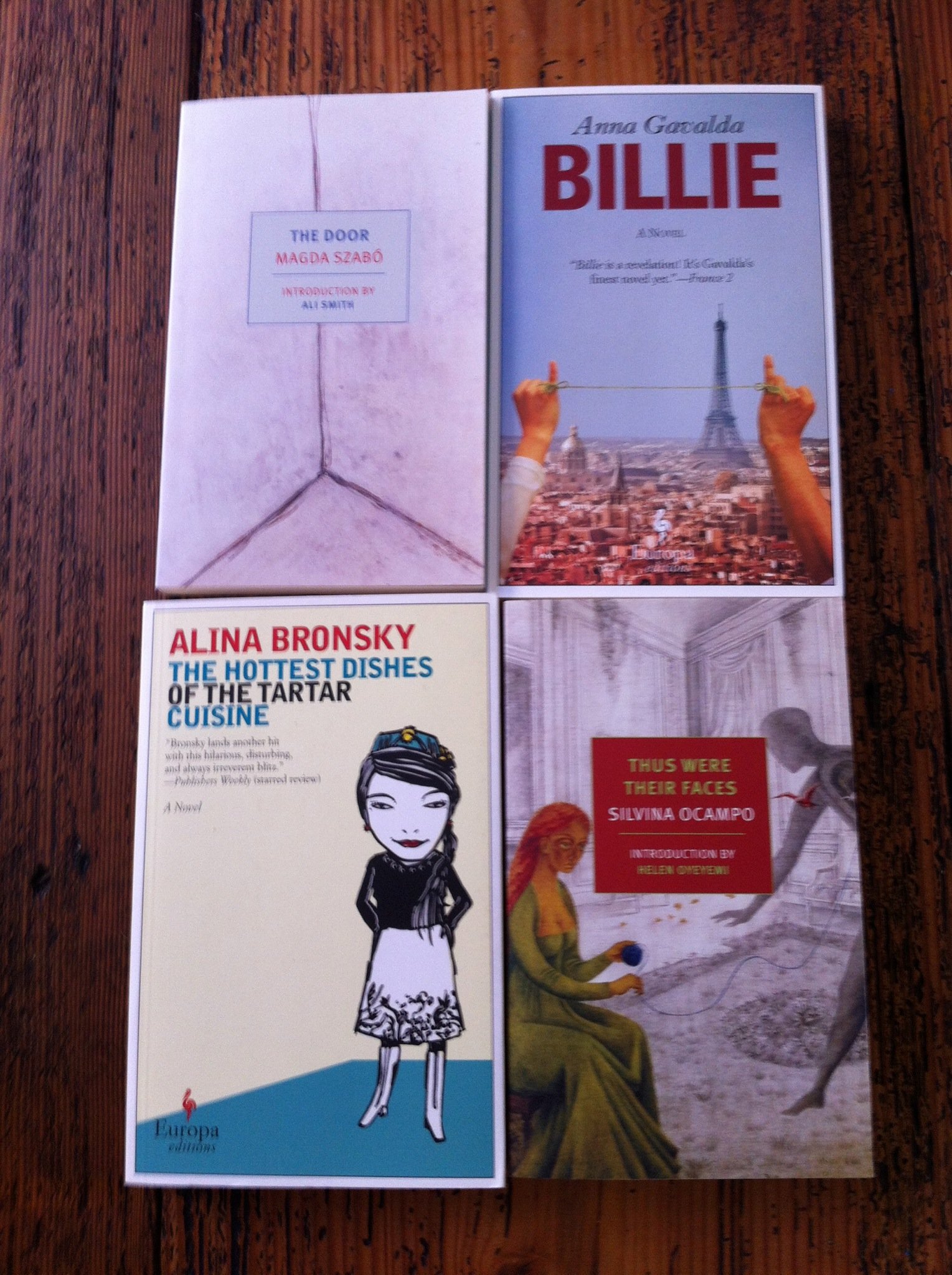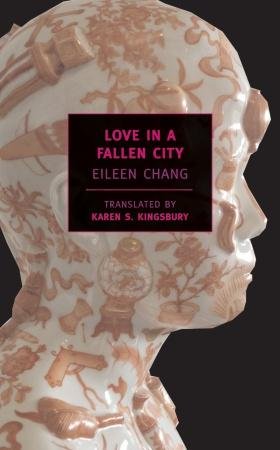Women in Translation Month is around the corner! Last year, I compiled a list of translated books by women that I enjoyed and created a Women in Translation Bingo game. I also wrote about novellas by Marguerite Duras and Eileen Chang and poetry collections from Rocío Cerón and Angélica Freitas.This summer has been a bit more hectic as I've been teaching more, taking my second novel through an eighth draft, and researching my third novel. However! I'm excited for Women In Translation Month and wanted to share with you four books on my to-read pile.What have you been reading? 
Disclosure: I am an affiliate of Bookshop.org and I will earn a commission if you click through and make a purchase.
For Women in Translation Month, I'm reviewing three novellas right here on this blog, as well as tweeting poetry in translation daily. The first of the three novellas is "Love in a Fallen City" by Eileen Chang. Stay tuned for a selection from Alexandra Kollontai's Love of Worker Bees and Marguerite Duras' "10:30 on a Summer Evening."
Eileen Chang has long been on my to-read list. So when I learned about Women in Translation Month I put her at the top of my agenda. You may know her through Ang Lee's adaptation of her 1979 novella Lust, Caution. Born in Shanghai in 1920, she straddled two radically different worlds. Translator Karen S. Kingbury writes in her introduction to Love in a Fallen City that "Chang's worldly form of the sublime was achieved [...] by viewing her father's [aristocratic, traditional] Qing world from her mother's [modern, Edwardian] perspective, but with an artist's compassionate detachment." This straddling of eras is apparent from the start of "Love in a Fallen City." Liusu, a twenty-eight-year-old divorcee, struggles to live with her stifling family in Shanghai. Their clocks are literally one hour behind the rest of the city to "save daylight," and, "The Bai household was a fairyland where a single day, creeping slowly by, was a thousand years in the outside world."
When news of her ex-husband's death arrives, her family tries to convince her to return to his family as his widow--thus relieving themselves of her burdensome presence. Rather bleakly, her elderly mother says, "Staying with me is not a feasible long-term plan. Going back is the decent thing to do. Take a child to live with you, get through the next fifteen years or so, and you'll prevail in the end." A matchmaker suggests Liusu find a new husband or become a nun and eventually convinces the Bai family to allow Liusu to travel with her to Hong Kong. There, the major conflict unfolds, when it becomes clear that Fan Liuyuan, "an overseas Chinese" had contrived to have Liusu come to Hong Kong. He wants "a real Chinese girl," "never out of fashion," and when she calls him a modern man he replies, "You say 'modern,' but what you probably mean is Western." Their uncertain budding relationship takes Liusu into territory as ambiguous and unsettling as being a widow in her mother's home, but with the frightening freedom of being more or less alone in a huge, unknown city.
Chang's writing is intensely visual, influenced by modernism while maintaining sparkling clarity. On Hong Kong's waterfront:
"it was a fiery afternoon, and the most striking part of the view was the parade of giant billboards along the dock, their reds, oranges, and pinks mirrored in the lush green water. Below the surface of the water, bars and blots of clashing color plunged in murderous confusion. Liusu found herself thinking that in a city of such hyperboles, even a sprained ankle would hurt more than it did in other places."
Her binocular vision (to borrow the the title of Edith Pearlman's collection, another straddler of worlds) is the kind of perspective I find endlessly fascinating. The invasion of Hong Kong has serious repercussions for Liusu and Liuyuan's future together. It's the sort of widening out, from the deeply intimate to the global, that I love to encounter in fiction and strive to achieve in my own work. I'm so glad I finally got to this novella and look forward to reading the rest of the collection. "The Golden Cangue," another novella in the volume, is translated by Chang herself--it'll be a real treat to get a sense of how she viewed her own work and how it should feel in English.
For more Women in Translation Month goodness, check out Meytal Radziniski's wonderful blog Biblibio.
Stay in the loop! Sign up here for a short & sweet monthly newsletter of upcoming events, publications, and tiny bits on art, food, cities, and literature. Like this blog, but less often and right in your inbox.
[mailchimp_subscriber_popup baseUrl='mc.us16.list-manage.com' uuid='f003e73335195658bffdce511' lid='45632cd706' usePlainJson='true' isDebug='false']

